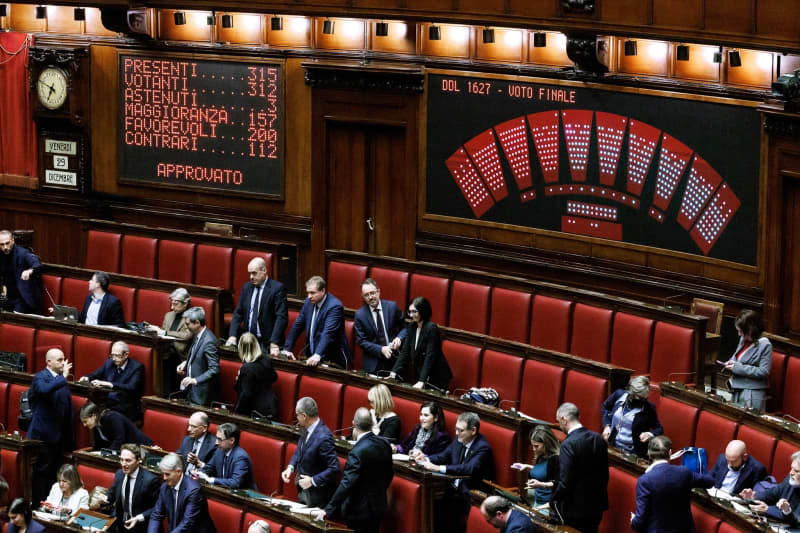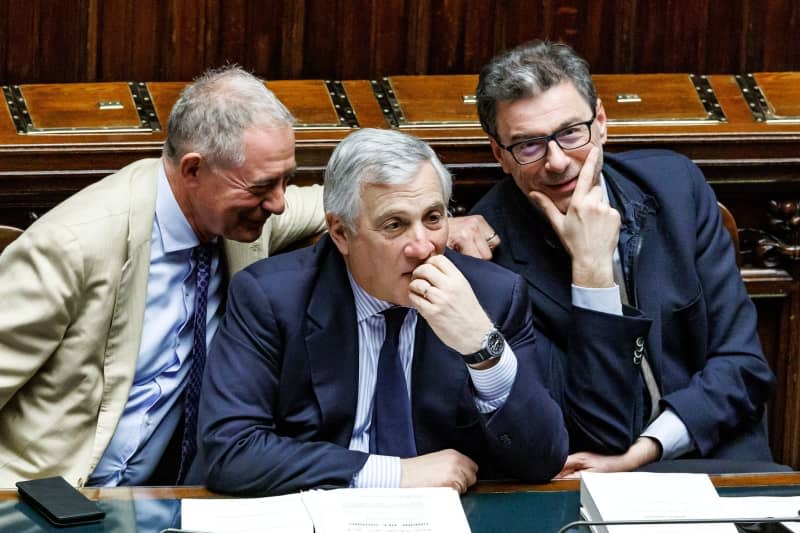Italy's parliament approves budget for 2024

- Oops!Something went wrong.Please try again later.
The Italian government led by Prime Minister Giorgia Meloni has passed its budget law for next year through parliament just in time for New Year's Eve.
The Chamber of Deputies in Rome - the larger of the two chambers - voted in favour of the budget plan on Friday with the votes of the right-wing majority.
The budget includes tax cuts for pensioners and tax relief for low earners. Financial measures to support families and more money for the health-care system are also planned.
The upper house, the Senate, had already approved the bill a week ago. In the Chamber of Deputies, 200 lawmakers voted in favour of the budget, 112 against.
The Italian constitution stipulates that both chambers of parliament must approve the budget in order for it to be passed by the end of the year, as is traditional.
One of the focal points of the 2024 budget is the reduction in income tax rates. From next year, a tax rate of 23% is to apply for annual incomes of up to €28,000 ($30,950), 35% up to €50,000 and 43% for annual incomes of €50,000 or more.
The budget also provides for tax relief for pensioners.
In addition, women with at least two children are to be taxed more favourably. Kindergarten is to be free from the second child onwards.
Tax cuts were a key election promise of Meloni's right-wing alliance, which has been in power since October 2022.
Spending is to be increased by €28 billion for 2024, almost €16 billion of which will be financed by additional deficits. Italy is one of the countries with the highest debt ratio in the world.
Experts and trade unions criticized the government's measures in advance as election gifts. Instead of pushing ahead with tax cuts and cost reductions based on election promises, there should be more investment in areas such as education and industry, they said.


